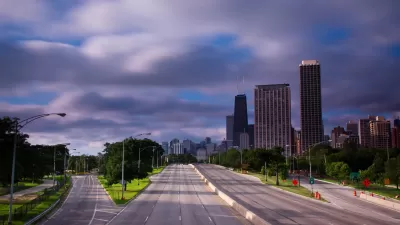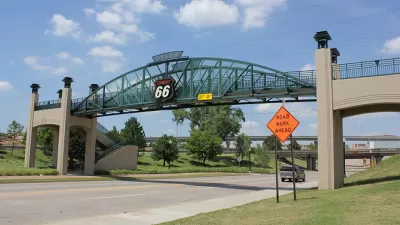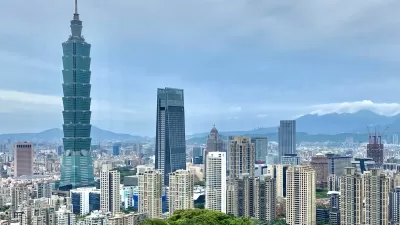Thousands of remote workers moved to Tulsa to take advantage of a $10,000 incentive program. The vast majority of them stayed.

An incentive program that offers remote workers $10,000 to move to Tulsa, Oklahoma is proving remarkably successful as new residents build community and grow to love their new home.
In a piece on Vox, Rani Molla describes how the Tulsa Remote initiative has transformed the city. “The latest Tulsa Remote economic impact report, which the organization conducted itself, found that in 2022, full-year Tulsa Remote members each generated $150,000 in labor income, which includes their salaries plus the estimated income Tulsans got based on their spending. That’s more than 10 times what the George Kaiser Family Foundation, which funds Tulsa Remote and a lot of the city’s other programs and public works, paid out to bring them there.” That’s not including an estimated $2.5 million in added sales tax revenue for the county.
For potential new residents, the money isn’t Tulsa Remote’s only draw: “The program also offered a place where they could find relatively affordable housing, access to free coworking space, and the subsidized opportunity to reimagine their lives anew somewhere else.”
Molla describes the program’s success and the resurgence of many Tulsa neighborhoods, but adds that conservative policies pose a barrier to many young people moving to Oklahoma. Over 2,400 people have participated so far. “Impressively, 90 percent have remained in Tulsa beyond the requisite one-year commitment, and 76 percent of all members have been there since the program launched. People are buying homes, starting families, and getting involved in the community.”
For Tulsa, the key to sustained success will be finding “a way to retain what makes it special while adapting to a new future” by protecting affordable housing and the other amenities that drew people there in the first place.
FULL STORY: Tulsa will pay you to live there. And you’ll love it.

Alabama: Trump Terminates Settlements for Black Communities Harmed By Raw Sewage
Trump deemed the landmark civil rights agreement “illegal DEI and environmental justice policy.”

Study: Maui’s Plan to Convert Vacation Rentals to Long-Term Housing Could Cause Nearly $1 Billion Economic Loss
The plan would reduce visitor accommodation by 25% resulting in 1,900 jobs lost.

Why Should We Subsidize Public Transportation?
Many public transit agencies face financial stress due to rising costs, declining fare revenue, and declining subsidies. Transit advocates must provide a strong business case for increasing public transit funding.

Paris Bike Boom Leads to Steep Drop in Air Pollution
The French city’s air quality has improved dramatically in the past 20 years, coinciding with a growth in cycling.

Why Housing Costs More to Build in California Than in Texas
Hard costs like labor and materials combined with ‘soft’ costs such as permitting make building in the San Francisco Bay Area almost three times as costly as in Texas cities.

San Diego County Sees a Rise in Urban Coyotes
San Diego County experiences a rise in urban coyotes, as sightings become prevalent throughout its urban neighbourhoods and surrounding areas.
Urban Design for Planners 1: Software Tools
This six-course series explores essential urban design concepts using open source software and equips planners with the tools they need to participate fully in the urban design process.
Planning for Universal Design
Learn the tools for implementing Universal Design in planning regulations.
Smith Gee Studio
Alamo Area Metropolitan Planning Organization
City of Santa Clarita
Institute for Housing and Urban Development Studies (IHS)
City of Grandview
Harvard GSD Executive Education
Toledo-Lucas County Plan Commissions
Salt Lake City
NYU Wagner Graduate School of Public Service





























